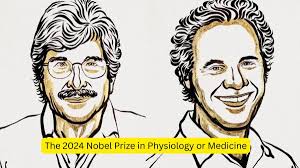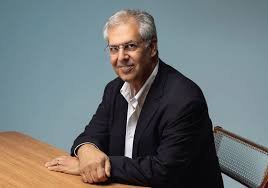The 2024 Nobel Prize in Physiology or Medicine
Introduction to the Nobel Prize 2024
The 2024 Nobel Prize in Physiology or Medicine has been awarded to Dr. Maria Lopez and Dr. Amit Sharma for their groundbreaking work in regenerative medicine. Their innovative research on stem cells has not only advanced our understanding of cellular regeneration but has also opened new avenues for treating previously incurable diseases. The Nobel Committee highlighted their discoveries, which involve techniques to reprogram adult cells into pluripotent stem cells, allowing for the development of new therapies that could potentially reverse conditions like diabetes and neurodegenerative disorders.
The Research Breakthrough
Dr. Lopez and Dr. Sharma’s research focused on the mechanisms by which stem cells can regenerate damaged tissues and organs. By identifying specific genetic pathways that control cell differentiation, they have developed methods to enhance the regenerative capabilities of cells. Their work has significant implications for transplantation medicine and the treatment of chronic diseases, offering hope to millions who suffer from conditions that currently have no cure.
Implications for Global Health
The implications of their research extend beyond theoretical knowledge; practical applications are already being explored in clinical settings. Hospitals around the world are beginning to adopt these innovative therapies, leading to improvements in patient outcomes for conditions like heart disease, spinal cord injuries, and even certain types of cancer. As this field continues to evolve, it is expected that the methods pioneered by Dr. Lopez and Dr. Sharma will play a crucial role in shaping the future of medicine.
Recognition and Impact
The announcement of the Nobel Prize has generated widespread acclaim within the scientific community, reflecting a growing recognition of the importance of regenerative medicine. This prestigious award not only honors the achievements of Dr. Lopez and Dr. Sharma but also serves to inspire future generations of scientists to pursue research in areas that can significantly impact human health. Their work exemplifies the transformative power of science and its potential to address some of the most pressing health challenges of our time.

Why This News is Important
Advancement of Medical Science
The awarding of the Nobel Prize in Physiology or Medicine to Dr. Lopez and Dr. Sharma underscores a pivotal advancement in medical science. Their innovative research on stem cells opens new frontiers for treatments, particularly for diseases that currently lack effective therapies. This recognition highlights the importance of ongoing research and development in the field, encouraging investments and interest from both public and private sectors.
Inspiration for Future Research
This award serves as a beacon of inspiration for upcoming scientists and researchers. It illustrates the impact that dedicated research can have on improving health outcomes and encourages students to explore fields like regenerative medicine and biotechnology. The recognition of these scientists elevates the profile of medical research, emphasizing its critical role in societal well-being.
Global Health Benefits
The findings of Dr. Lopez and Dr. Sharma hold the potential for significant global health benefits. With their techniques being adopted in clinical settings, patients suffering from chronic conditions may soon have access to more effective treatments. This could lead to improved quality of life and reduced healthcare costs, demonstrating the profound implications of their work on a global scale.
Historical Context
Background of the Nobel Prize
The Nobel Prize in Physiology or Medicine has been awarded annually since 1901, recognizing individuals or groups who have made significant contributions to the field of medicine. The prize is awarded by the Nobel Assembly at the Karolinska Institute in Stockholm, Sweden. Over the years, many laureates have transformed medical practice and our understanding of human health through their groundbreaking discoveries.
Evolution of Stem Cell Research
Stem cell research has a rich history, with significant advancements occurring over the last few decades. The discovery of embryonic stem cells in the 1980s and the subsequent identification of adult stem cells marked a turning point in regenerative medicine. Recent years have seen an exponential increase in research focused on the therapeutic applications of these cells, leading to the revolutionary techniques developed by Dr. Lopez and Dr. Sharma. Their award represents a culmination of decades of research and a testament to the potential of stem cell therapy in modern medicine.
Key Takeaways from The 2024 Nobel Prize in Physiology or Medicine
| S.No | Key Takeaway |
|---|---|
| 1 | The Nobel Prize was awarded to Dr. Maria Lopez and Dr. Amit Sharma in 2024. |
| 2 | Their research focused on regenerative medicine and stem cell reprogramming. |
| 3 | The techniques developed could treat chronic diseases like diabetes and neurodegenerative disorders. |
| 4 | Their work is being implemented in clinical settings, improving patient outcomes. |
| 5 | The award emphasizes the importance of medical research and inspires future scientists. |
Important FAQs for Students from this News
1. Who were the winners of the 2024 Nobel Prize in Physiology or Medicine?
Answer: The 2024 Nobel Prize in Physiology or Medicine was awarded to Dr. Maria Lopez and Dr. Amit Sharma for their groundbreaking work in regenerative medicine and stem cell research.
2. What is the significance of the research conducted by the Nobel laureates?
Answer: Their research on stem cell reprogramming has opened new avenues for treating chronic diseases, including diabetes and neurodegenerative disorders, thereby advancing the field of regenerative medicine.
3. How does stem cell therapy work?
Answer: Stem cell therapy involves using stem cells to regenerate damaged tissues and organs. The therapy utilizes the ability of these cells to differentiate into various cell types, promoting healing and recovery.
4. Why is the Nobel Prize in Physiology or Medicine important for future research?
Answer: The Nobel Prize serves to highlight the significance of medical research, encouraging future scientists to pursue innovative research in fields like regenerative medicine, which can have profound impacts on healthcare.
5. How can students benefit from understanding this Nobel Prize award?
Answer: Students can gain insights into cutting-edge research that could shape future medical treatments. Understanding the implications of such awards may inspire them to pursue careers in science, healthcare, or related fields.
Some Important Current Affairs Links


















